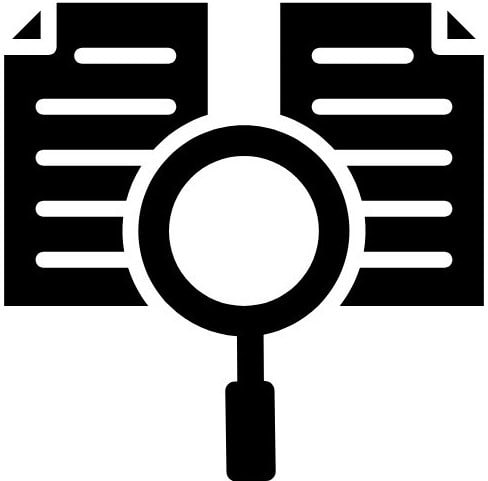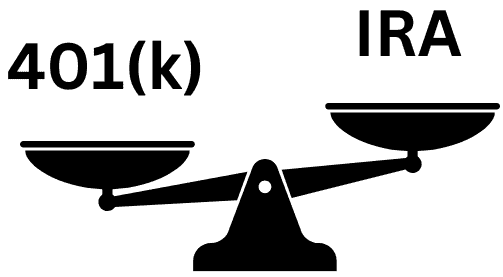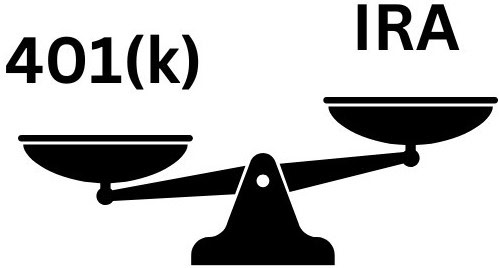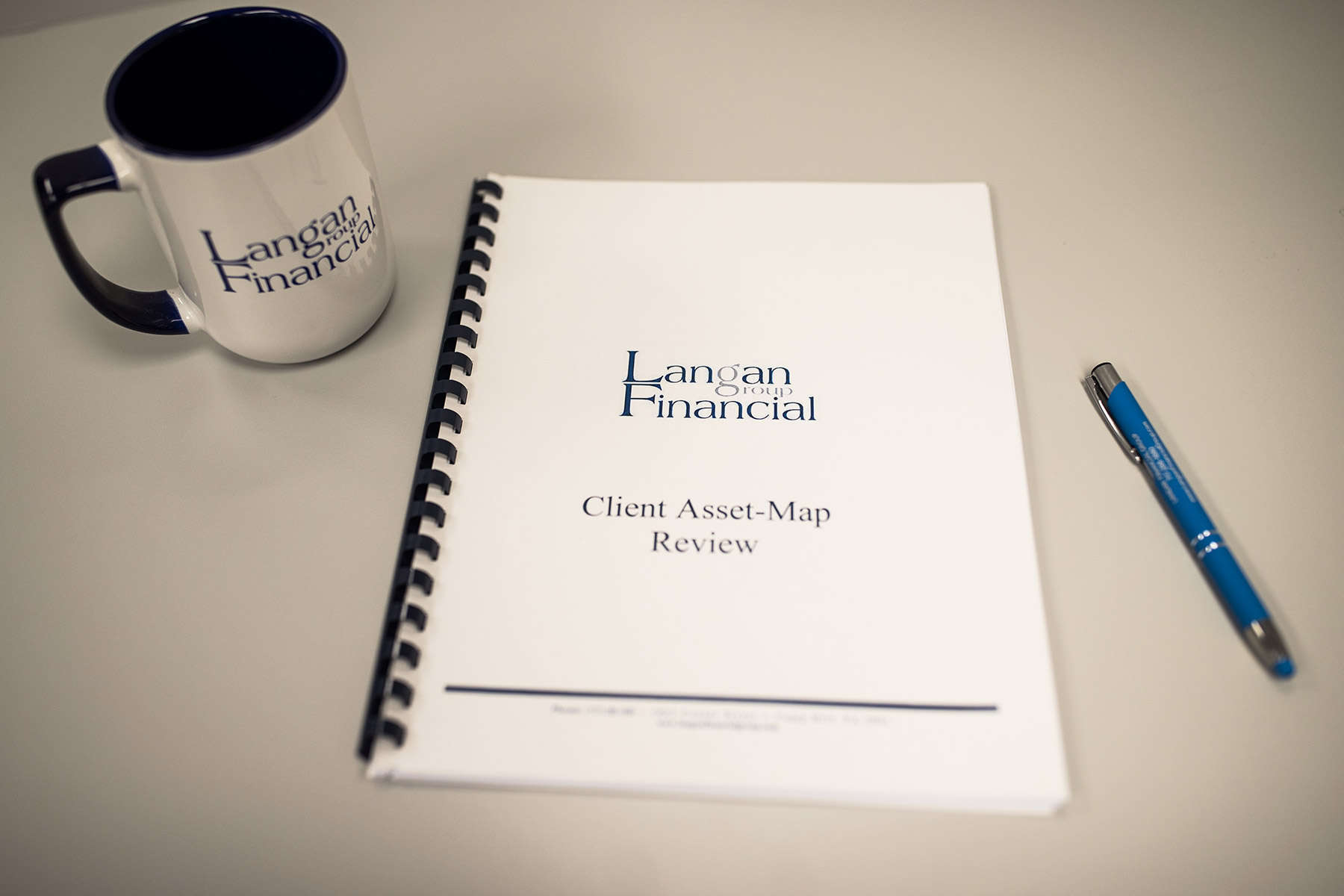
What Are My 401(K) Rollover Options?
When an employee leaves their job, they have to decide what to do with their old 401(k) retirement account. There are five common options you can consider that include:
- Rolling your old 401(k) into an IRA
- Cashing out your old 401(k) account
- Take a distribution from your old 401(K) account
- Leaving your old 401(k) with your former employer
- Rolling your old 401(k) into your new employer’s 401(k) plan
When Would I Want to Leave My Old 401(k) with My Former Employer?
Leaving your old 401(K) account with your former employer is the easiest option as it requires the least amount of work.
In some situations, however, this may be the only option as the new employer does not have a 401(K) plan you can roll over your old account into.
Unable to Roll Over Your 401(K) Account
You may be unable to roll over your 401(K) into the new plan. If you have a loan balance on your current 401(k) account, you may not be able to roll over your 401(k) until the loan balance is paid off.
Another obstacle preventing the rollover may be there is no auto-portability feature. This is a feature within the 401(k)-plan design that allows for the automatic movement of an inactive retirement account from a former employer’s retirement plan to their new employer’s plan.
This option makes it easier for employees to keep their retirement savings when they change jobs and consolidate accounts.
If this feature does not exist, you will be required to initiate the 401(K) rollover yourself.
When Would I Want to Rollover my 401(k) into my New Employer’s 401(k) Plan?
While leaving your old 401(k) at your former employer may be the path of least resistance, there are scenarios in which better options are available.
Compare 401(K) Investment Fund Lineups

When comparing two 401(k) plans, it is important to look at the investment fund options.
Some plans may have limited investments which can make it harder to have a suitable, diversified allocation. A plan may also have unique investments that are not commonly available in other retirement plans.
The new employer’s plan will likely have different investment options, which could be a pro or a con. This fully depends on personal suitability and what will be the most appropriate.
Compare 401(K) Plan Fees
In addition to the investment options, plans will also have a difference in 401(K) plan fees. Even if you are no longer an employee, if your 401(K) account remains in the company’s 401(K) plan it will still have to pay the plan fees.
You should compare the two 401(K) plan fees to determine if moving the old 401(K) account would be beneficial.
Compare 401(K) Plan Design
When leaving a sponsoring employer, the participant will lose some control over the account, such as:
- ability to make contributions
- investment changes
- withdrawals
- loans
Comparing the 401(k) plan designs is important to understand how the new plan will differ from the previous. Provisions that will likely differ are:
- Eligibility
- Employer match
- Vesting schedules
Even though plan provisions may differ, it is important to consider that a participant separated from service will no longer contribute, receive a match, accrue a vested benefit, or take loans. In some situations, they are also unable to make investment changes.
If you wish to maintain control over your retirement assets and use the resources provided by a 401(k) plan, it may be suitable to roll over into the new 401(k) plan.
If you are not concerned about flexibility within a 401(k) plan and are only focused on investing for your retirement, then this may be a moot point.

Consolidating 401(K) Assets
Sometimes it is easiest to consolidate your financial accounts into one place. This helps you avoid missing accounts and ensure they are being managed according to your wishes.
By rolling over your 401(K) account into the new program, you can avoid having to manage two different financial accounts and in a worst-case scenario having a lost 401(k) account.
This is only possible if the new employer has a 401(k) or other employer-sponsored retirement plans.
When Would I Want to Rollover my Old 401(k) into an IRA?
A 401(k) rollover to an IRA may be a good option if the new company does not offer a retirement plan. This allows an individual to maintain more control over:
- Investment fees
- Investment options
- Avoid potential penalties
- Possibility of a conversion
Control Over Investment Options and Fees
When rolling an account value out of a 401(k), it opens up the possibility of a wider range of investment options.
An employer-sponsored retirement plan will have a set investment menu, whereas, with an IRA, an account holder can invest in any of the funds available to the holding company.
How Do I Roll Over my 401(K) Without Penalties?
When leaving an employer, they may force a cash out of the 401(k), requiring the accountholder to pay taxes and penalties. One way of preventing this is to roll out the 401(k) into an IRA, where it can stay until retirement.
Potential Option to Convert Traditional 401(K) to Roth IRA

It is possible to convert a pre-taxed 401(k) into a Roth IRA. This means the account holder will pay taxes on the money when it is converted, but all the withdrawals in the future will be tax-free.
Whether or not a Roth conversion is suitable depends on the current situation of the account holder.
When Would I Want to Take a Distribution From my Old 401(k) Account?
Be careful if you are considering taking a distribution from your 401(K) account. We highly recommend if you are considering this path discuss it with a financial professional.
This is because there are potential tax implications that could cause a decrease in your retirement savings account.
Taking a distribution from a 401(k) is a more viable option if the accountholder is 59 and 1/2 or older. They are able to take distributions tax-free to replace income during retirement.
In addition to retirement, there are a few circumstances where distributions can be made from a 401(k) without penalty.
401(k) Distribution for Education and Medical Expenses
Some 401(k)s do allow for the participant to withdraw money from their account penalty free to pay for specific education and medical expenses.
Prior to doing so, we recommend you discuss your 401(k)’s plan design with your company’s HR team or a financial advisor.
When Would I Want to Cash Out my Old 401(k) Account?
Cash Your 401(K) Out
Cashing out a 401(k) is an option that is generally not recommended because of the significant penalties and tax implications. There are some situations when it may be recommended, but they are more likely to be a last resort.
Cashing Out Your 401(K) for a Financial Hardship

This may be a suitable decision in certain situations of “immediate and heavy financial need”, per the IRS.
Situations under this definition may be exempt from the 10% early withdrawal penalty, but most are not.
- Medical expenses
- Permanent disability
- Eviction
- Facing foreclosure
- Basic living expenses
Withdrawing from a 401(k) plan should be seen as a last resort.
It is also important to understand that hardship withdrawals are different from loans, where the hardship typically does not need to be paid back like a loan.
Cashing Out Your 401(K) for Career Changes
During a job change, some people may choose to cash out their 401(k) rather than transfer it to the new employer’s plan.
This could be because the balance is small, but it is not recommended because there will be tax implications.
What Should I Consider When Looking to Rollover my Old 401(K) Account?

When weighing your options of what to do with your old 401(k) account, you should take into consideration the following five questions:
- How do the plan designs differ?
- Is consolidating my assets best for me?
- Am I able to roll over my 401(K) account?
- How do the investment fund options differ?
- What are the fees to roll over my 401(K) account?
Each person’s scenario may have a different outcome as to what they perceive is their best option. If you are able to rollover your old 401(k) into a new 401(k) plan, you will want to know how the plans differ.
Depending on the plan design, fund line-up, and fees may encourage you to either keep your old 401(k) where it is or roll it over.
If you do not have the option to rollover your 401(k) into a new plan, you may want to transfer it to an IRA. A major priority for you could be to consolidate assets. It is always convenient having your investments in one portfolio as it helps make it easier to manage.
When determining what to do, we always suggest talking it through with a financial advisor. They should focus on understanding your goals, each scenarios pros and cons, and help walk you through the impact each option will have.
It is vital, you are able to make an educated decision and feel comfortable with your choice.
How Can I Avoid 401(K) Rollover Penalties and Taxes?
If a distribution is made from your old 401(k) account, you have within 60 days to deposit all or a portion of it into an IRA or retirement plan. If you do not comply with the 60-day rollover rule, the funds will be subject to taxes.
In addition, if you are younger than 59 ½ you will also be subjected to the early withdrawal penalty.
In most scenarios, these penalties and taxes are avoided by directly transferring funds from your old 401(k) account into the IRA or qualified retirement plan. This way, the money is never in your name and you will not have to worry about the 60-day rollover rule.
How Can I Find Out More Information About How to Rollover my 401(K)?
There are three main places we would recommend reaching out to learn more about your rollover options:
- The company’s HR department
- The 401(k) plan’s financial advisor
- A financial advisor
These resources should be able to answer your questions or help point you in the right direction. Any financial advisor should be able to help answer your questions and walk you through each scenario’s pros and cons for you.
Should I Roll Over my Old 401(K) Account?
Should I Roll Over my 401(K)?
There are many different options to consider in what to do with your old 401(K) account. It is important to consider all your options available and the implications for each option.
A person just starting out in their career with a few hundred dollars in their account is likely to choose a different choice than a 55-year-old with over a hundred thousand in savings.
Each option has pros and cons. It is vital you take into consideration:
- What is your current situation?
- What are your financial goals and preferences?
- Are there potential taxes or fees associated with your choice?
- With there be additional administrative work such as managing two accounts?
We recommend consulting with a financial professional to help you work through these questions and determine which option is best for you. Each person’s situation is different and what may be best for you may differ for another person.
About the 401(K) Advisor Authors:

Alexander Langan, J.D, CFBS, serves as a financial advisor at Langan Financial Group. In this role, he manages investment portfolios, acts as a fiduciary for group retirement plans, and consults with clients regarding their financial goals, risk tolerance, and asset allocation.
With a focus on ERISA Law, Alex graduated cum laude from Widener Commonwealth Law School. He then clerked for the Supreme Court of Pennsylvania and worked in the Legal Office of the Pennsylvania Office of the Budget, where he assisted in directing and advising policy determinations on state and federal tax, administrative law, and contractual issues.
Alex is also passionate about giving back to the community, and has participated in The Foundation of Enhancing Communities’ Emerging Philanthropist Program, volunteers at his church, and serves as a board member of Samara: The Center of Individual & Family Growth. Outside of work and volunteering, Alex enjoys his time with his wife Sarah and their three children, Rory, Patrick, and Ava.

Harry Claypool currently serves as an Associate 401(k) Advisor at Langan Financial Group where he assists Alex in servicing retirement plans, preparing plan reviews, and handling administrative work.
In his free time, Harry enjoys visiting new restaurants, spending time with friends and family, and watching the Eagles.
About Langan Financial Group
Langan Financial Group is an independent financial planning firm with two locations; one in Harrisburg Pennslyvania, and another in York, Pa. Langan Financial has received over 100+ – 5 star reviews and 10+ independent financial awards.
Established in 1985, Langan Financial offers a broad range of financial planning services. With an open architecture platform, our advisors have access to a diverse range of products, free from any sales quotas. Our team of 9 financial experts, each with unique specialties, enhances our ability to focus on delivering value to our clients.
Disclosure
The information in this material is not intended as tax or legal advice. Please consult legal or tax professionals for specific information regarding your individual situation.
The opinions expressed and material provided are for general information, and should not be considered a solicitation for the purchase or sale of any security
.Securities offered through Cambridge Investment Research, Inc., a Broker/Dealer, Member FINRA/SIPC.
Investment Advisor Representative, Cambridge Investment Research Advisors, Inc. a Registered Investment Advisor. Cambridge and Langan Financial Group, LLC are not affiliated.
Cambridge does not offer tax or legal advice.




